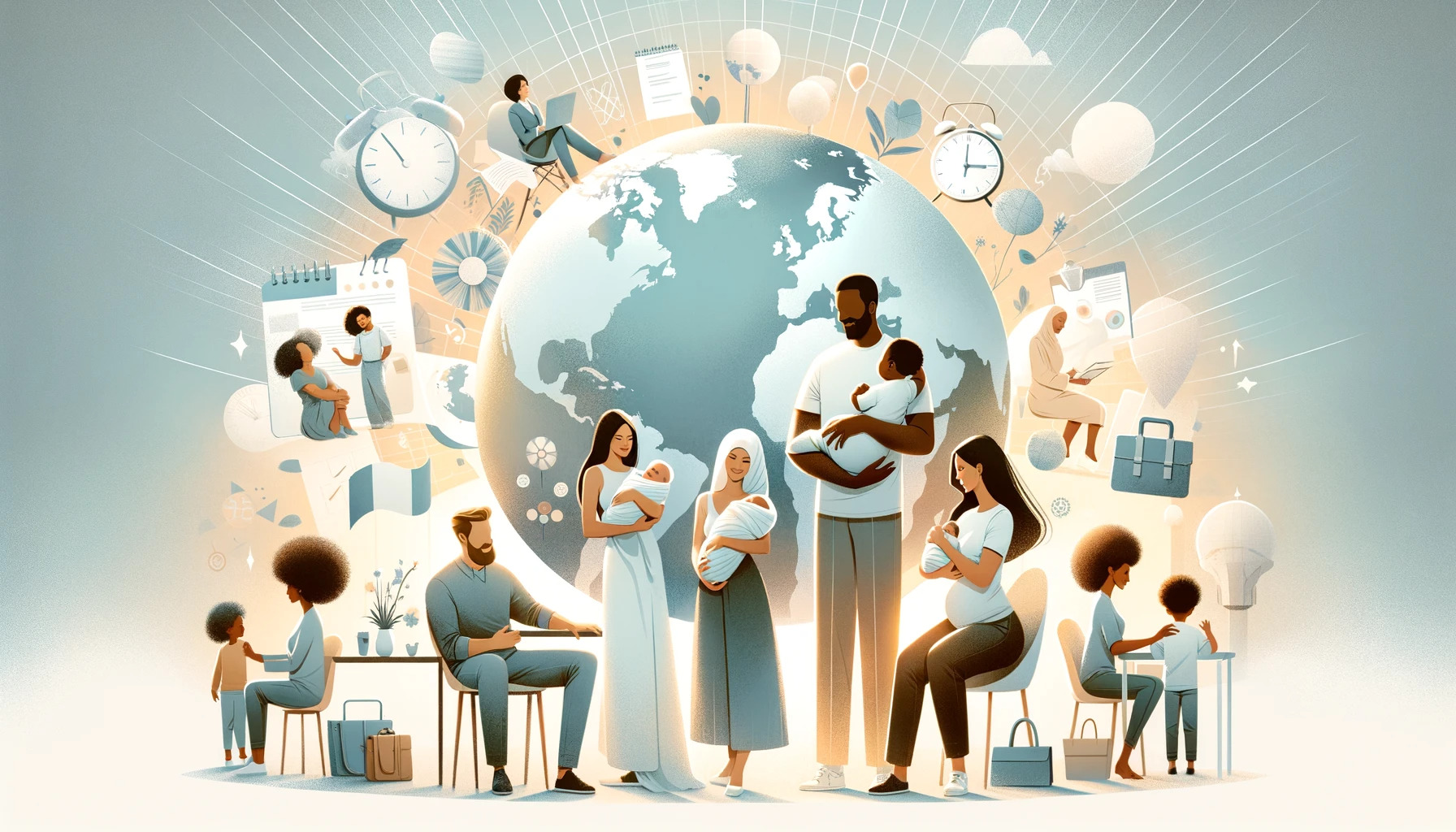Welcoming a new child is a life-changing experience, and taking time off work to bond with a newborn is crucial. In today’s globalized world, understanding paternity leave policies in different countries is essential, especially for expats and multinational employees. This article, tailored for the Day Off app’s diverse audience, delves into paternity leave policies worldwide, offering valuable insights for expectant fathers.
Scandinavia: A Benchmark in Paternity Leave
- Keywords: Sweden paternity leave, generous paternity policies
- Content: In Scandinavia, paternity leave sets a global benchmark. Sweden, for example, offers 90 days specifically for fathers, encouraging shared parental responsibility.
North America: A Mixed Landscape
- Canada Paternity Leave: Canada offers up to 5 weeks in Quebec, a model for progressive paternity leave.
- United States Paternity Leave: The U.S. lacks federal mandates, with policies varying widely among employers and states.
Europe’s Diverse Approach
- Germany Paternity Leave: Offers “Elterngeld,” allowing parents to take time off and receive a portion of their salary.
- UK Paternity Leave: Up to two weeks of statutory paternity leave, promoting work-family balance.
Asia’s Evolving Policies
- Japan Paternity Leave: Despite offering generous leave, cultural factors impact its utilization.
- India Paternity Leave: Limited statutory provisions, reflecting traditional family roles.
Latin America: Emerging Trends
- Brazil Paternity Leave: Offers 5 days, with extended leave for employees of certain companies.
- Argentina Paternity Leave: Provides a mandatory 2 days, with ongoing discussions for extension.
Africa: A Region of Contrast
- South Africa Paternity Leave: Recently extended to 10 days, reflecting changing societal norms.
- Nigeria Paternity Leave: Limited provisions, indicative of the region’s diverse policy landscape.
Challenges and Future Directions
- Global Economic Factors: Economic constraints in developing countries affect the implementation of paternity leave policies.
- Cultural Shifts: A growing recognition of shared parenting responsibilities is influencing policy changes.
- Gender Equality and Paternity Leave: Paternity leave is vital for promoting gender equality in parenting and the workplace.
A World of Change
The landscape of paternity leave policies is as diverse as it is dynamic. Understanding these differences is crucial for new fathers navigating their parental rights, especially in an international context. With societal attitudes evolving, we can anticipate further changes, making it more important than ever for fathers to stay informed.
